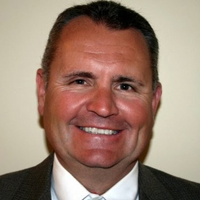By Ian Berger, JD
IRA Analyst
Follow Us on Twitter: @theslottreport
One of the more controversial provisions of the new SECURE 2.0 law concerns 401(k) catch-up contributions.
Most 401(k) plans – as well as 403(b) and governmental 457(b) plans – permit employees who are age 50 or older to make catch-up contributions. The limit for catch-ups in 2023 is $7,500, allowing for total elective deferrals of up to $30,000.
Beginning in 2024, SECURE 2.0 requires that certain high-paid 401(k) participants who want to make catch-ups must make them on a Roth basis. This means that the contributions will be made on after-tax pay, but the contributions and associated earnings can be distributed tax free if certain conditions are met. (This generally requires that the participant be 59 ½ or older and a five-year holding period be satisfied.)
There are several other new Roth provisions in SECURE 2.0 involving Roth SEP and SIMPLE contributions, Roth 401(k) employer contributions, and 529 plan-to-Roth IRA rollovers. But the catch-up rule is the only mandatory change.
Mandatory Roth catch-ups only apply to employees who have wages above a certain dollar amount in the previous year. For 2024, that dollar amount is $145,000 of 2023 wages. (The $145,000 threshold will be indexed in future years.) SECURE 2.0 specifically uses the term “wages.” But many self-employed business owners don’t have wages; instead, they have earned income. So, older 401(k) participants with earned income apparently aren’t covered by the new law. This means an age 50-or-older business owner with more than $145,000 of earned income in 2023 can still make pre-tax catch-ups to her 401(k) in 2024.
SECURE 2.0 says that prior-year wages must be with the employer sponsoring the 401(k). So, a high-paid employee who changes jobs will get a free pass from the mandatory Roth catch-up in the year he starts the new job. That’s because he won’t have any wages from his current employer in the prior year.
What if the 401(k) plan doesn’t already allow participants to make employee contributions on a Roth basis? After all, nothing requires a plan to offer the Roth option. Here’s where it gets tricky. It appears that a plan that doesn’t allow Roth contributions has two options next year. It can begin offering the Roth option for catch-ups – which would be mandatory for high-paid employees and optional for others. Or, it could continue not to allow Roth contributions, but then it couldn’t offer catch-up contributions.
One last point is that Congress mistakenly deleted a part of the tax code when drafting SECURE 2.0. The result is that the way the code now reads is that no employees (high-paid or not) will be able to make any catch-up contributions (pre-tax or Roth) starting in 2024. Hopefully, either Congress will fix this mistake or the IRS will turn a blind eye to it.
https://www.irahelp.com/slottreport/mandatory-roth-catch-contributions-required-2024

